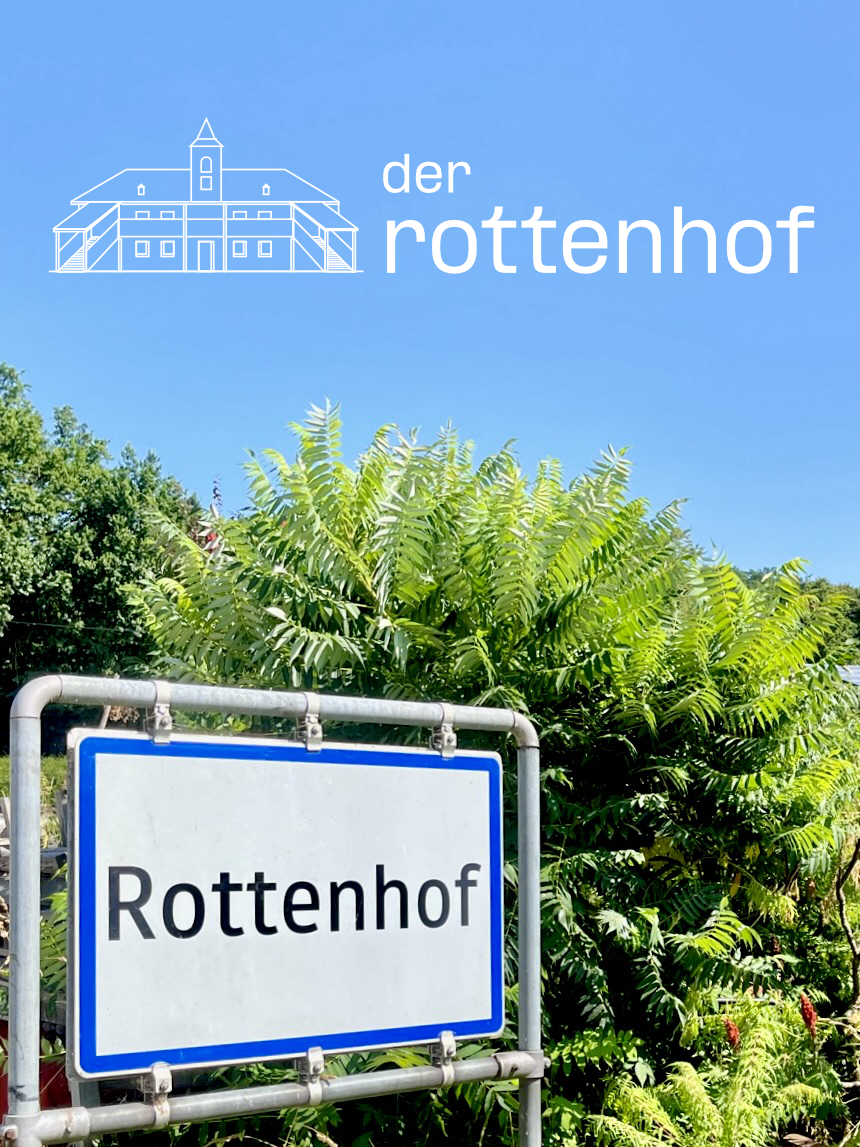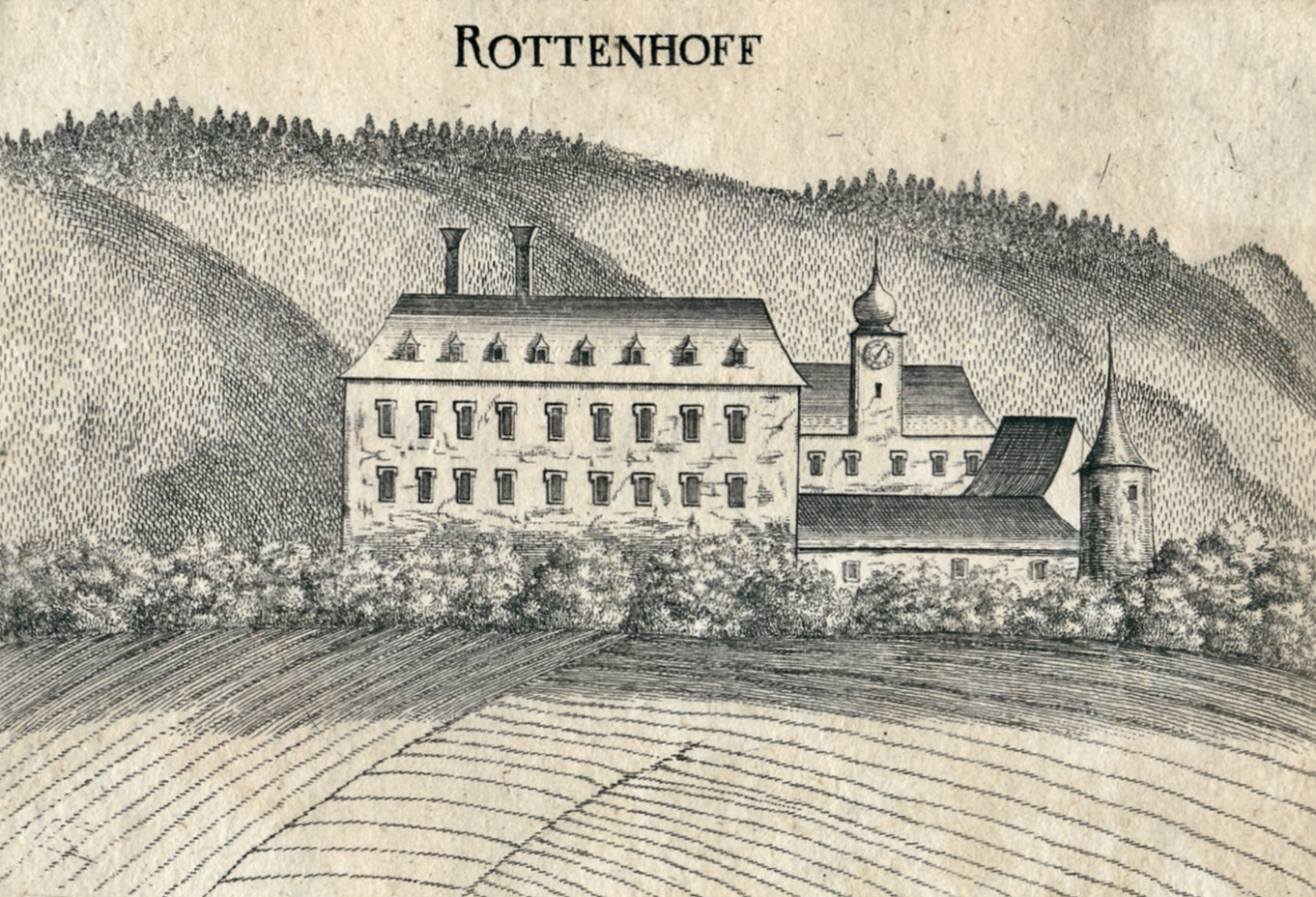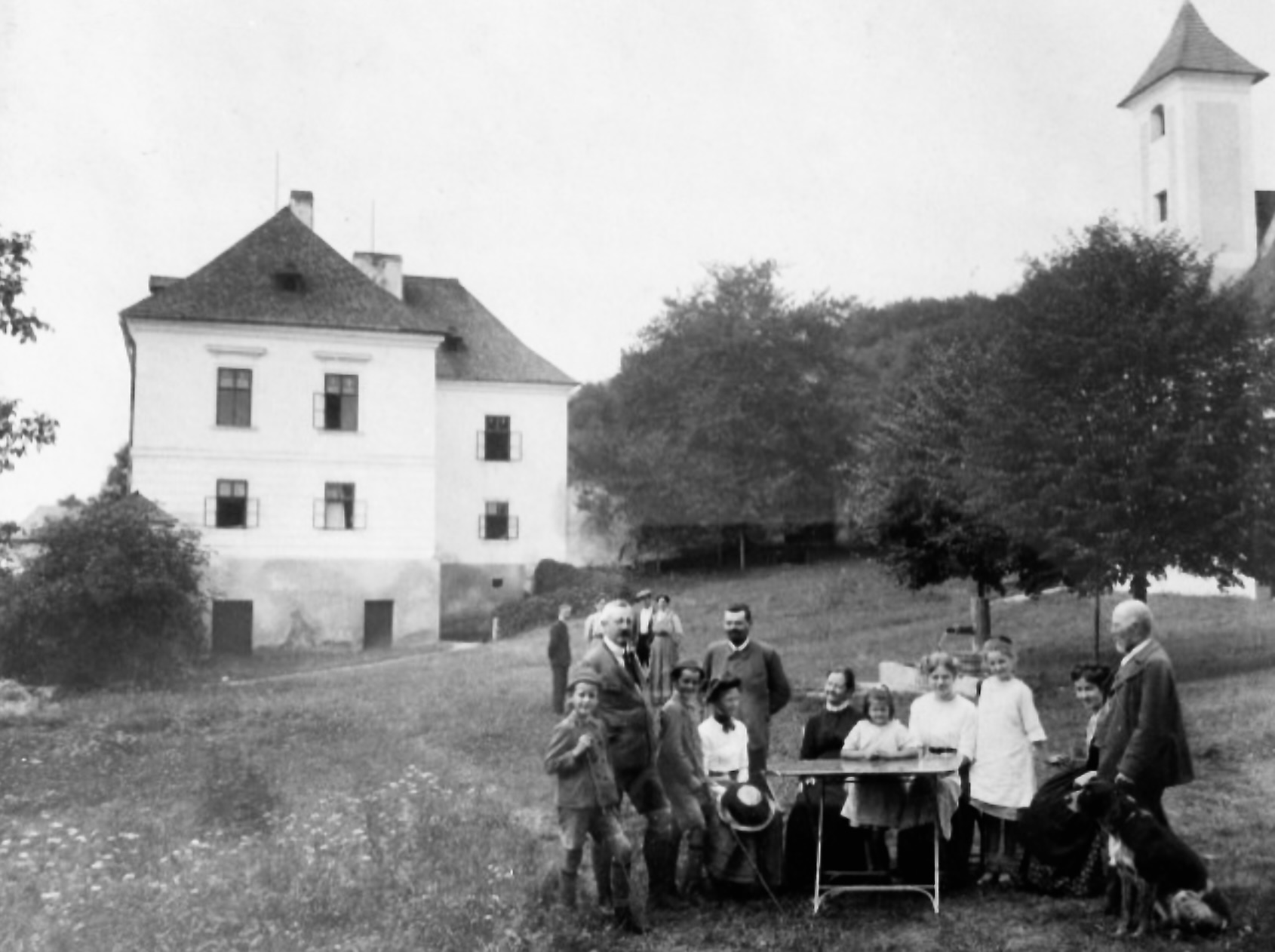
accommodation & events: booking@rottenhof.at
General inquiries: office@rottenhof.at
Telephone: +43 664 1807915
Address:
Rottenhof
Rottenhof 15 - Schloss
3680 Rottenhof | Hofamt Priel
by car:
A1 exit Ybbs a.d.D., Pöchlarn or Melk.
by train:
Western Railway Line - station Ybbs/Donau or Amstetten - We’d be glad to give you a ride!
by bike:
Danube Bike Trail | Krems - Melk - Persenbeug

For seven centuries, Schloss Rottenhof has been an architectural gem of the upper classes and a place of power.
Originally, the property was a sovereign fief, which was granted by Duke Albrecht IV in 1395 under the name "Rothhof zu Persenbeug". The ground plan of the three-storey main building was hook-shaped at the time. The two-storey farm building with a small bell tower was already part of the estate at that time, and has been a part of the estate since the visits of Emperor Maximilian. Hunting lodge is called. Legend has it that Emperor Maximilian I often visited Rottenhof Castle to refresh himself with the good water during his hunting breaks. It is said that he was the one who had the spring set in marble.
After 1672, Schloss Rottenhof was significantly reduced in size. The beautiful estate had a variety of owners: after a series of princely feudal lords, Mang Irnfried was granted a fiefdom and freedom of service by King Ferdinand I in 1533, who bought the Altenmarkt estate in the same year and made Rottenhof Castle its administrative center. Around a hundred years later, the Hoyos family acquired the house and estate, which subsequently passed into the possession of the Herberstein, Offenbach and Preising families, but was reacquired by the Hoyos in 1720. From 1790, the Rottenhof was in the hands of the Habsburg-Lothringen family.

The current owners fell in love with the walls, gardens, meadows, and the surrounding landscape—and embraced this hidden gem with heart and vision. A family devoted to meeting challenges and high standards with a forward-thinking spirit, setting a new, contemporary standard for sustainability and humanism.
The cosmopolitan yet sustainable lifestyle of the owners gives Schloss Rottenhof a wonderful flair of generosity, passion and the promotion of idealistic values in a time of widespread change. As a value that must be passed on to future generations, the edible landscapes and permaculture garden have also been created here, which in turn gives the refuge a special and precious character.